











Read More
B Tech in Cloud Technology and Information programme, at Assam down town University, deals with the latest advancement in the field of cloud computing and information security. With the rising threat of data breaches, the demand for skilled professionals in the segment is growing and we intend to bridge this gap with a skilled workforce that can take up future industry challenges.
Year wise Course Details
Courses for this semester
The course consists of topics in differential calculus, integral calculus, linear algebra and differential equations with applications to various engineering problems. This course will cover the following main topics: Mean Value Theorems; Indeterminate Forms; Taylor's and Maclaurin's Theorems.
To provide comprehensive idea about AC and D C circuit analysis, working principles and applications of basic machines in electrical engineering.
The course starts with a brief overview of mathematical logic and covers topics: Introduction to Mathematical Logic, the rules of mathematical logic specify methods of reasoning mathematical statements, basic notions from elementary set theory. This covers the maths and logic concepts that are important for programmers to understand.
In order to improve the student's performance in group discussions and personal interviews, the goal of this course is to teach the students communication skills linked to employability. They will be prepared for their professional future with a mix of traditional lectures, PowerPoint presentations, and other active teaching approaches such as group discussions, cooperative group problem-solving, analysis of film scenes, and debates.
It is to develop the social and soft skills and to promote a holistic development of the learners.
Courses for this semester
Describe the concept of first order differential equation and apply them in understanding complex problems. Apply the concept of ordinary differential equations of higher orders.
To make the students conversant with atomic and molecular structure. To develop an understanding of the concepts of spectroscopic techniques and their applications. To understand the concept of chemical equilibrium. To have a thorough knowledge of water treatment .To understand the basic concepts of stereochemistry, organic reactions, and synthesis of a drug molecule.
Learning this course will lead you to understand the advanced concepts of Physics. To apply knowledge of Physics in practical problems. It will give idea about application of different theories of Physics. It will help the students to acquire knowledge of the physics of any process. Modelling and manufacturing of engineering structure based on the concepts of physics.
This course is aimed at advancing concepts of programming and software code organization within the framework of structural and procedural programming paradigms. The course is oriented to those who want to advance structured and procedural programming understating and to improve C programming skills. The major objective is to provide students with understanding of code organization and functional hierarchical decomposition with using complex data types.
In this course we will understand the course on Environmental Science at Undergraduate level that aims to train students to cater to the need for ecological citizenship through developing a strong foundation on the critical linkages between ecology-society-economy.
Extracurricular activities are programs that are not part of the regular school curriculum; and, are structured around an activity, goal, or purpose. Also known as extra-academic activities, extracurricular activities include sports, student government, community service, employment, arts, hobbies, and educational clubs. Extracurricular activities complement an academic curriculum.
Courses for this semester
This course will cover the basic concepts of Computer Architecture that are important for you to understand, including the CPU control and data path, memory systems including caching and virtual memory, and input/output subsystems.
In this course we will understand different data structures and how to use them effectively for solving problems. It is expected that the students have basic experience in any high-level programming language. Data structures and algorithms are a crucial part of programming interviews. This course is a complete course on Complete data structure and algorithms. The main focus here will be mastering the Data structures, implementing those and some problems explaining application of those data structures and understand different programming paradigms, analysis of algorithms and applying different data structures.
This course introduces students to the fundamentals of Java programming. Java is a high-level, object-oriented programming language widely used for building cross-platform applications. Students will learn to develop efficient, reusable code by exploring the core concepts of Java and applying them in practical scenarios. The course covers essential programming constructs, object-oriented principles, and key Java libraries, culminating in the creation of real-world applications.
This course provides an introduction to computer networks, with a special focus on the Internet architecture and protocols. Topics include layered network architectures, addressing, naming, forwarding, routing, communication reliability, the client-server model, web and email protocols. Besides the theoretical foundations, students acquire practical experience by programming reduced versions of real Internet protocols.
The Techno-Professional Skills course is designed to equip students with the essential technical and professional skills required to excel in the modern workplace. This course focuses on enhancing both technical competencies and soft skills, enabling students to become well-rounded professionals. Through practical sessions, workshops, and real-world projects, students will improve their communication, teamwork, problem-solving, and leadership abilities while learning the use of modern technological tools and platforms relevant to their field.
This course focuses on the role of extracurricular activities in personal and professional development. It aims to help students engage in activities beyond the academic curriculum that foster holistic growth, enhance leadership skills, and promote teamwork and creativity. The course emphasizes the importance of balancing academics with extracurricular pursuits to develop essential life skills, such as communication, organization, time management, and problem-solving. Students will explore various extracurricular options, participate in them, and reflect on the skills and experiences gained.
Courses for this semester
This course covers information security principles, an area of study that engages in protecting the confidentiality, integrity, and availability of information. In this course students learn basics of information security, in both management aspect and technical aspect. Students understand of various types of security incidents and attacks, and learn methods to prevent, detect and react incidents and attacks. Students will also learn basics of application of cryptography which are one of the key technologies to implement security functions.
A database management system (DBMS) is collection of software meant to manage a Database. Many popular databases currently in use are based on the relational database model. RDBMSs have become a predominant choice for the storage of information in new databases used for financial records, manufacturing and logistical information, personnel data and much more. The course covers the basic concepts of databases in general with an emphasis on relational databases, modeling techniques and writing queries. Normalization techniques, Transaction processing, Concurrency Control techniques and Recovery of databases against crashes are also covered.
The purpose of this course is to provide an overview of computer operating systems. Topics to be discussed include a brief history of OS’s and their design and development. The course will cover major components the and the algorithms and implementation techniques used to create them. The course covers the classical internal algorithms and structures of operating systems, including CPU scheduling, memory management, and device management. Considers the unifying concept of the operating system as a collection of cooperating sequential processes. Covers topics including file systems, virtual memory, disk request scheduling, concurrent processes, deadlocks, security, and integrity
Python Programming is an introductory course designed to equip students with fundamental programming skills using Python, a versatile and widely-used programming language. The course covers core topics such as syntax, data structures, control flow, functions, file handling, and error handling, along with an introduction to libraries for data manipulation, visualization, and basic automation. Through hands-on exercises and real-world projects, students will learn to write efficient, readable code and apply Python to solve problems across various domains, laying the foundation for advanced programming and data-driven applications.
"Web Technology" introduces students to the fundamental concepts and tools required for designing, developing, and deploying web-based applications. The course emphasizes client-side and server-side programming, responsive design, and modern web development practices, providing a strong foundation for aspiring web developers.
By the end of the Techno-Professional Skills course, students will be equipped with a comprehensive blend of technical and professional abilities critical to thriving in today’s fast-evolving technological landscape. They will have developed competencies in areas such as effective communication, teamwork, and project management, along with enhanced problem-solving skills tailored to technological contexts. Additionally, students will gain a strong understanding of ethical practices in technology, professionalism in diverse work environments, and strategies for continuous self-improvement, enabling them to adapt to industry demands and pursue successful careers in technology.
Co-curricular activities refer to activities outside the classroom, including programs and learning experiences that complement what students learn in schools. Co-curricular activities allow students to grow comprehensively, enrich personal experiences, and improve social skills through real-world situations.
Courses for this semester
This course introduces the students to the core concepts of cloud computing. The students gain the foundational knowledge required for understanding cloud computing from a business perspective as also for becoming a cloud practitioner. The students will understand the definition and essential characteristics of cloud computing, its history, the business case for cloud computing, and emerging technology usecases enabled by cloud.
This course provides an introduction to computer and network security. Students successfully completing this class will be able to evaluate works in academic and commercial security, and will have rudimentary skills in security research. The course begins with a tutorial of the basic elements of cryptography, cryptanalysis, and systems security, and continues by covering a number of seminal papers and monographs in a wide range of security areas.
This course introduces the basic ideas of computing, networking, communications, security, and virtualization, and will provide the students with an important foundation for the rest of the course.
This course will teach the students on how systems connect to and interact with the web and how the most common languages of the internet (HTML5, CSS3, and JavaScript) work to allow information to be shared worldwide.
This course introduces general standards of good reasoning and offers tools to improve critical thinking skills. These skills will help to determine when an argument is being given, what its crucial parts are, and what it assumes implicitly. Students will also learn how to apply deductive and inductive standards for assessing arguments and how to detect and avoid fallacies.
In this course the students will learn how to secure open source and commercial database platforms against modern threats and attack vectors. This course includes a mix of conceptual lectures and detailed screen casts outlining all the steps involved with conducting test attacks and subsequently securing database platforms.
In this course the students will learn and explore the working principles and utilities of various cryptographic algorithms including secret key cryptography, hashes and message digests, and public key algorithms. They will explore the design issues and working principles of various authentication Protocols. And explore various secure communication standards including Kerberos, IPsec, and SSL/TLS and email.
This course will cover client server architecture and impart knowledge on how to develop a web application using PHP technologies. Students will gain the skills and project-based experience needed for entry into web application and development careers.
Courses for this semester
The course is about the fundamentals of the Linux operating system, including installation, configuration, administration, file management, and security.
This course enables the students to gain in-depth knowledge in the field of Computer forensics & Cyber Crime. Learning Outcomes: After completion of the course the students will be able to learn investigation tools and techniques, analysis of data to identify evidence, Technical Aspects & Legal Aspects related to cyber crime.
Ethical hacking course involves the study of an authorized attempt to gain unauthorized access to a computer system, application, or data. Carrying out an ethical hack involves duplicating strategies and actions of malicious attackers.
Ethical hacking course involves the study of an authorized attempt to gain unauthorized access to a computer system, application, or data. Carrying out an ethical hack involves duplicating strategies and actions of malicious attackers.
The course will introduce and cover the topics of cloud infrastructures, virtualization, software defined networks and storage, cloud storage, and programming models. As an introduction, we will discuss the motivating factors, benefits and challenges of the cloud, as well as service models, service level agreements (SLAs), security, example cloud service providers and use cases. Modern data centers enable many of the economic and technological benefits of the cloud paradigm; hence, we will describe several concepts behind data center design and management and software deployment. Next, we will focus on virtualization as a key cloud technique for offering software, computation and storage services. We will study how CPU, memory and I/O resources are virtualized, with examples from Xen and VMWare, and present real use cases such as Amazon EC2. Within the same theme of virtualization, students will also be introduced to Software Defined Networks and Storage (SDN and SDS). Subsequently, students will learn about different cloud storage concepts including data distribution, durability, consistency and redundancy. We will discuss distributed file systems, NoSQL databases and object storage. HDFS, CephFS, HBASE, MongoDB, Cassandra, DynamoDB, S3, Swift and Ceph Object Gateway will be presented as case studies. Finally, students will understand the details of the MapReduce programming model and gain a broad overview of the Spark, GraphLab programming models as well as message queues and stream processing.
Courses for this semester
This course covers the different types of service and deployment models of cloud computing. In this module, you will learn about the three main service models available on the cloud—Infrastructure-as-a-Service (IaaS), Platform-as-a-Service (PaaS), and Software-as-a-Service (SaaS).
In this course, student learn how to apply automation to manage fleets of computers and understand how to automate the process for deploying new computers, keeping those machines updated, managing large-scale changes, and a lot more.
This course provides a comprehensive analysis of individual and group behavior in organizations. Its purpose is to provide an understanding of how organizations can be managed more effectively and at the same time enhance the quality of employees work life. Topics include motivation, rewarding behavior, stress, individual and group behavior, conflict, power and politics, leadership, job design, organizational structure, decision making, communication and organizational change and development.
The "Biology for Engineers" course provides engineering students with a foundational understanding of biological principles and their applications in engineering. This interdisciplinary course bridges the gap between biology and engineering, emphasizing how biological systems can inspire and inform innovative engineering solutions. Students will explore key concepts in biology, including cellular structure and function, genetics, molecular biology, and ecosystems, while learning how these principles are applied in various engineering fields such as biotechnology, biomedical engineering, environmental engineering, and synthetic biology.Through a combination of lectures, hands-on labs, and case studies, students will gain an appreciation for the complexity of living systems and learn how to leverage biological insights to solve real-world engineering challenges. By the end of the course, students will be equipped with the knowledge to integrate biological concepts into their engineering practice, fostering the development of cutting-edge technologies that address contemporary societal needs.
The Cyber Forensics Lab course provides students with hands-on experience in the field of digital forensics, focusing on the practical application of forensic techniques and tools. This lab-based course complements theoretical knowledge by immersing students in real-world scenarios where they will investigate digital crimes, recover and analyze digital evidence, and follow the proper legal protocols to ensure the integrity of the evidence. Students will work on a variety of exercises and case studies that simulate real-life cyber incidents, such as data breaches, malware attacks, and insider threats. Using industry-standard forensic tools and software, students will learn to conduct forensic investigations on computers, mobile devices, and networks. They will practice techniques for data acquisition, evidence preservation, file system analysis, and the recovery of deleted or encrypted data. In addition to technical skills, students will also focus on the legal and ethical aspects of cyber forensics, understanding the importance of chain of custody, documentation, and the preparation of forensic reports that can be presented in legal contexts. By the end of the course, students will have developed the practical skills necessary to conduct thorough and legally sound forensic investigations, preparing them for careers in cybersecurity, law enforcement, and other fields where digital forensics is essential.
Courses for this semester
This course provides an overview of data science principles, techniques, and tools for extracting insights from data. The course covers essential topics such as data wrangling, exploratory data analysis, statistical modeling, machine learning, and data visualization. Students will learn to apply these concepts using real-world datasets and programming languages like Python or R. This course aims to equip students with the skills to solve data-driven problems and make data-informed decisions.

CST- Common scholarship test is a national and international level online MCQ based examination funded for intellectual empowerment by Assam down town University.
CST- Maximum enrolment each year is 269 seats and any 10+2 students can apply. Adtu is northeast India’s first placement driven university to provide 100% scholarship benefits worth 30 cr.
CST aims to inspire brilliant and competent students to pursue further education. Accredited with a prestigious grade by NAAC, UGC and AICTE.
Explore more scholarships that can help you reach out your goal with financial aid.
This scholarship is valid on the basis of the board/university examination
| 95% & above | 100% Scholarship on all semester |
| 90%-94.9% | 50% Scholarship on all semester |
| 80%-89.9% | 25% Scholarship on all semester |
This scholarship is valid on the basis of the board/university exam
| National & International Level | 100% Scholarship on all semester |
| State Level | 50% Scholarship on all semester |
| District Level | 25% Scholarship on all semester |
This scholarship is valid on the basis of the board/university exam
| National & International Level | 100% Scholarship on all semester |
| State Level | 50% Scholarship on all semester |
| District Level & NCC Certificate Holder | 25% Scholarship on all semester |
Discover a multitude of world-class amenities and cutting-edge resources at Assam down town University, enhancing your academic journey to new heights.
The Start-Up & Incubation Centre at Assam down town University provides a supportive environment for young entrepreneurs to develop and grow their business ideas. The center provides mentorship, funding, and networking opportunities to help innovative ideas become successful businesses.
SFURTI scheme to support rural entrepreneurs and innovators, an initiative by the Ministry of MSME
TIDE 2.0 scheme for ICT-based startups which provides a grant of Rs. 4L and Rs. 7L under EiR and Grant categories respectively, an initiative by the Ministry of MeitY.
dtVL Ideation, an incubation program for early-stage entrepreneurs with a market-ready solution/product, offering interest-free loans up to Rs. 2 lakhs.
Sprout UP, an incubation program for students, faculties, and researchers with innovative business ideas, prototypes, or technology solutions.





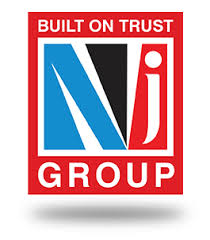

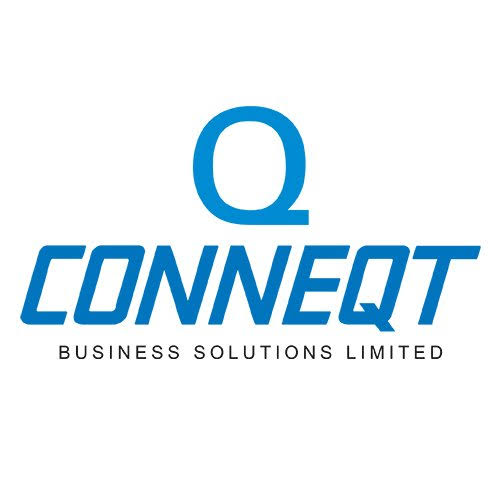



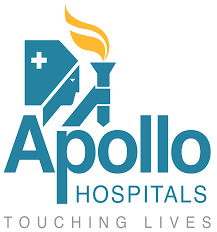


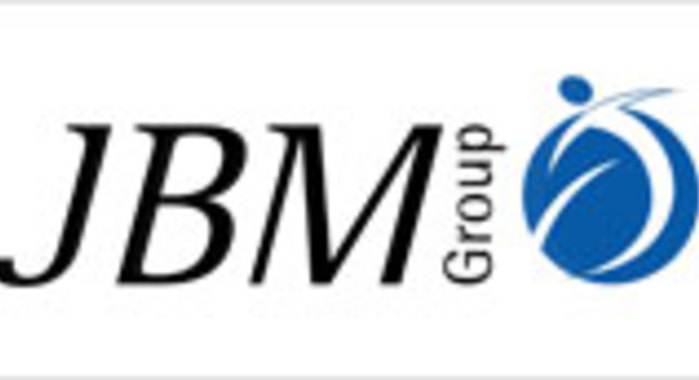

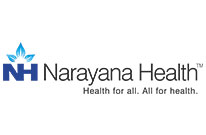


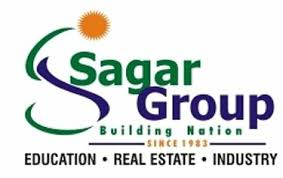


















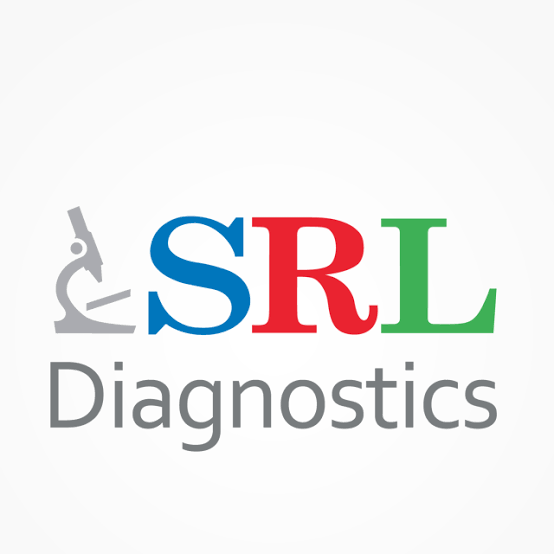






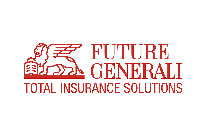




"I am a BBA student of 3rd semester. I hail from Bhutan. I vow that I am having a great experience i...
"AdtU is amazing. I am a BBA student of 2019-22 batch and I am just grateful for the amount of oppor...
Let us be grateful to the people and place who makes us happy. They are the charming gardeners whom ...
Currently I am pursuing MBA in Assam Down Town University. MBA is the professional course through wh...
AdtU is a university that focuses on giving knowledge, education and simultaneously making the stude...
The Assam downtown University has been a great learning experience. The university has provided me w...
My experience with AdtU has been splendid one indeed. Little needs to said about its scenic infrastr...
As a student I am very glad that I have got an opportunity to study here in Assam downtown universi...
My name is Sakhyajit Roy. I?m from Tripura. I joined the university on Auguest, 2017 as a student of...
I share immense pleasure to share my post graduate program experience in Assam down town University....
AdtU is a platform where I got golden opportunities to feed my zeal for knowledge through the dynami...
I am fortunate to get an opportunity to study here in Assam Downtown University. The best thing abou...
Our university is one of the best place for developing ourselves in the field of research and acedem...
ADTU is a university that is very good interms of infrastructure, academics and placements. Our tea...
It is one of best private colleges in North East India, it also provides a good environment for ed...
ADTU is a good University which provides the students with best quality lectures and ensures comfort...
The environment of Assam downtown university is very pleasant.The department of BMLT is very good a...
The university has all the necessary facilities and amenities for students . The classrooms and the ...
Assam downtown University is well recognised all over india. In the ongoing pandemic situation it ha...








